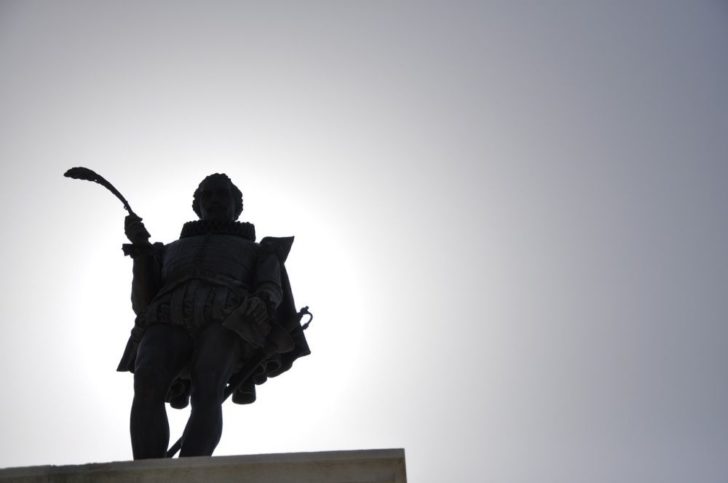Edgar Allan Poe: The Enigmatic Master of Dark Romanticism

Introduction to Edgar Allan Poe
Considered one of the greatest literary figures in American history, Edgar Allan Poe continues to captivate readers with his mesmerizing tales of horror, mystery, and the macabre. Born on January 19, 1809, in Boston, Massachusetts, Poe’s short but influential life left an indelible mark on the world of literature.
Poe’s upbringing was fraught with tragedy and hardship. After his father abandoned the family and his mother passed away, he was taken in by the Allan family. Despite a rocky relationship with his foster father, Poe managed to excel academically and began writing poetry at a young age. His talent and ambition led him to pursue a career in writing, setting the stage for the emergence of a literary genius.
Historical Evolution of Edgar Allan Poe

While initially celebrated for his poetry, it was Poe’s short stories that truly defined his legacy. In the early 19th century, he pioneered the genre of detective fiction with tales such as “The Murders in the Rue Morgue” and “The Purloined Letter.” These stories laid the foundation for the modern detective mystery and introduced readers to the brilliant detective archetype that would later become a staple in literature.
Poe’s unique writing style, known as Dark Romanticism, reflected the darker aspects of human existence. His works delved into themes of death, madness, and the subconscious, often exploring the intricate workings of the human mind. His revolutionary use of symbolism and allegory provided readers with an immersive and haunting experience, making his stories both chilling and thought-provoking.
Despite his immense talent, Poe struggled with personal demons throughout his life. Battling alcoholism and enduring numerous personal losses, his own tragic experiences undoubtedly influenced his writing. This raw emotion and vulnerability is evident in many of his works, such as “The Raven” and “Annabel Lee,” which are renowned for their melancholic undertones and evocative language.
Poe’s literary contributions extended beyond his works of fiction. He also made significant contributions to literary criticism, emphasizing the importance of unity of effect and meticulous attention to detail. His critical essays, such as “The Philosophy of Composition,” continue to shape the way writers approach their craft, providing insights into the creative process and the construction of a compelling narrative.
In popular culture, Poe’s influence can be seen in various forms, including film, music, and visual arts. His tales have inspired countless adaptations and continue to resonate with audiences worldwide. The enduring legacy of Edgar Allan Poe serves as a testament to his unparalleled storytelling prowess and his ability to tap into the darkest recesses of the human psyche.
Conclusion
Edgar Allan Poe’s literary genius and unparalleled storytelling continue to captivate readers to this day. Through his haunting tales and poetic prowess, he remains an enigmatic figure in the world of literature. His contributions to detective fiction, his exploration of the human mind, and his profound impact on the craft of writing solidify his status as a literary icon.
[Keywords for featured snippet:
– Edgar Allan Poe
– Dark Romanticism
– Detective fiction
– Symbolism and allegory
– The Raven
– Melancholic undertones
– Literary criticism
– Popular culture
– Adaptations]
Sources:
– Poe, Edgar Allan: Britannica
– Poe, Edgar Allan: Poetry Foundation
– Poe, Edgar Allan: The Edgar Allan Poe Society of Baltimore
FAQ
How has Edgar Allan Poe influenced popular culture?
What genre of literature is Edgar Allan Poe known for?
What was Edgar Allan Poes contribution to literature?
Flere Nyheder
Udstil din kunst på den rette platform
Introduction to Edgar Allan Poe Considered one of the greatest literary figures in American history, Edgar Allan Poe continues to captivate readers with his mesmerizing tales of horror, mystery, and the macabre. Born on January 19, 1809, in Boston, M...
03 april 2025
Stjernetegn plakater: Find plakat til enver smag
Introduction to Edgar Allan Poe Considered one of the greatest literary figures in American history, Edgar Allan Poe continues to captivate readers with his mesmerizing tales of horror, mystery, and the macabre. Born on January 19, 1809, in Boston, M...
10 juli 2024
Find den perfekte ramme til dit kunstværk
Introduction to Edgar Allan Poe Considered one of the greatest literary figures in American history, Edgar Allan Poe continues to captivate readers with his mesmerizing tales of horror, mystery, and the macabre. Born on January 19, 1809, in Boston, M...
11 april 2024











